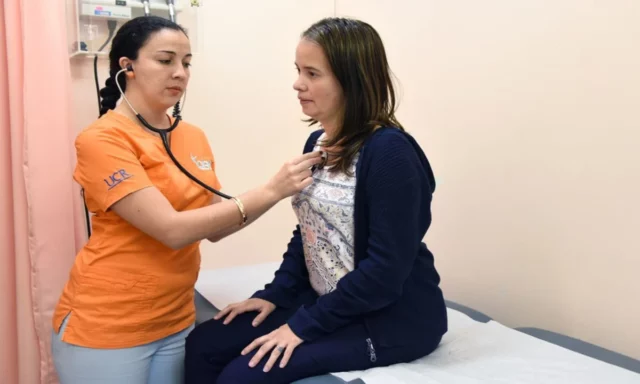The National Institute of Statistics and Censuses (INEC) registered in 2020 the death of 1,280 people from heart-related diseases. In addition, 573 died from acute myocardial infarction, making cardiovascular diseases one of the main causes of death in Costa Rica, as indicated last weekend at the National Medical Congress.
Cardiologist Elliott Garita explained that heart problems have a high degree of complexity. “Costa Rica ages like rich countries”: pensions and care feel risk as demographics change. Cardiovascular diseases are quite complex in terms of treatment and have become more complicated,” he said.
The issue of these heart ailments comes to the fore after Costa Rica woke up last Thursday with the news of the death of the director of the Judicial Investigation Organization (OIJ), Wálter Espinoza. At age 54, Espinoza died of cardiac arrest. Although he was transferred to the medical center immediately, nothing could be done.

Covid-19
Garita highlighted another factor that was added to the complications of the disease in Costa Rica: Covid-19. According to the doctor, many patients -after suffering from the virus- began to present episodes of:
- High pressure
- Formation of clots in the arteries
- Lung problems
- Sleep disorder
- Difficult to focus
“With the arrival of this new disease, a close relationship was seen between patients who died or became very complicated due to having some cardiovascular factor.
“This represented a challenge for doctors who had to rethink the appropriate treatments and surgeries according to each patient,” Garita explained. The pandemic forced specialists to rethink existing treatments, given that some, before improving, worsen the patient’s condition.
Currently, doctors point out that the pandemic continues, and they do not minimize that heart disease remains the main cause of death. “It has come to rethink an entire process, including how we take care of ourselves as doctors, the staff is very important for the treatment of these diseases,” he added.
Complications
Patients with complications from Covid and combined with cardiovascular problems should be selected under a scale of risks and benefits. “This scale allows us to determine the treatment to follow, if it is better to operate at the moment or wait and operate later. It is also rethinking the physical abilities of the doctor due to the significant increase in work, now we operate much more complex patients,” he said. He stressed that in cases where the patient has no complications and has heart problems, you should wait about 3 months after the last crisis to do tests.

Heart failure
Heart failure occurs when the heart does not pump blood to the body adequately, according to studies women are more likely to suffer from it. According to a 2021 study in the Journal of the American Heart Association, women exposed to air pollution and traffic noise increase their risk of developing heart failure. “Prevention is a fundamental pillar and for this we need to modify our lifestyles in healthier directions,” said Mauricio Chaves, a cardiovascular doctor at Bayer.
Symptoms:
- Shortness of breath
- Gets tired often
- Weakness
- Heart beats very fast
- Difficulty exercising
- Swollen legs, ankles, or feet
“Among other risk factors that can trigger insufficiency are diabetes, some medicines for diabetes, alcohol, problems breathing well when sleeping, smoking, obesity and some viruses,” said Chaves.

